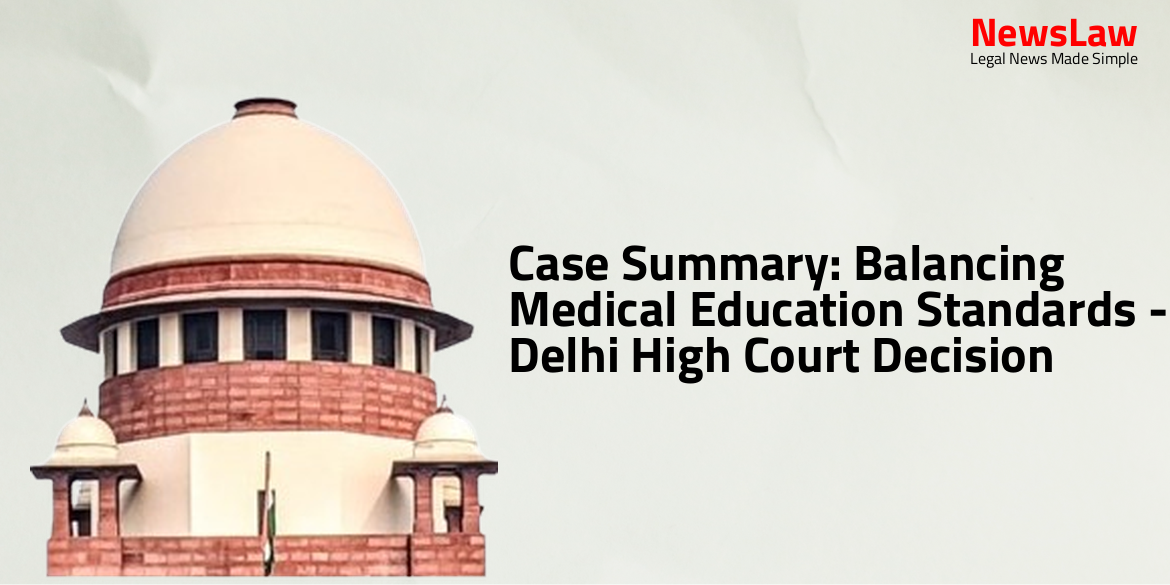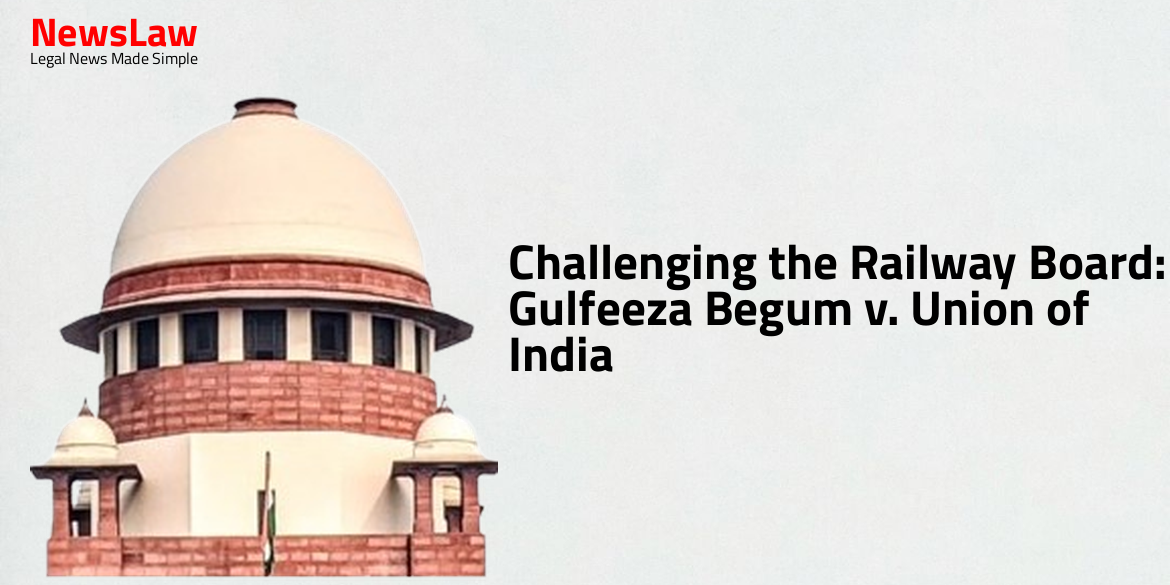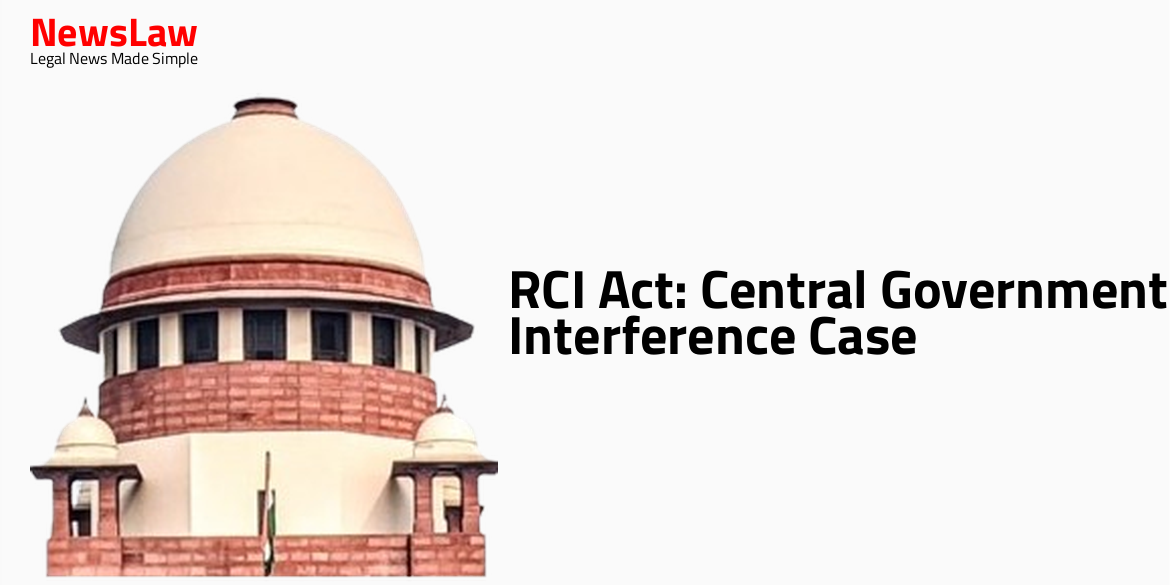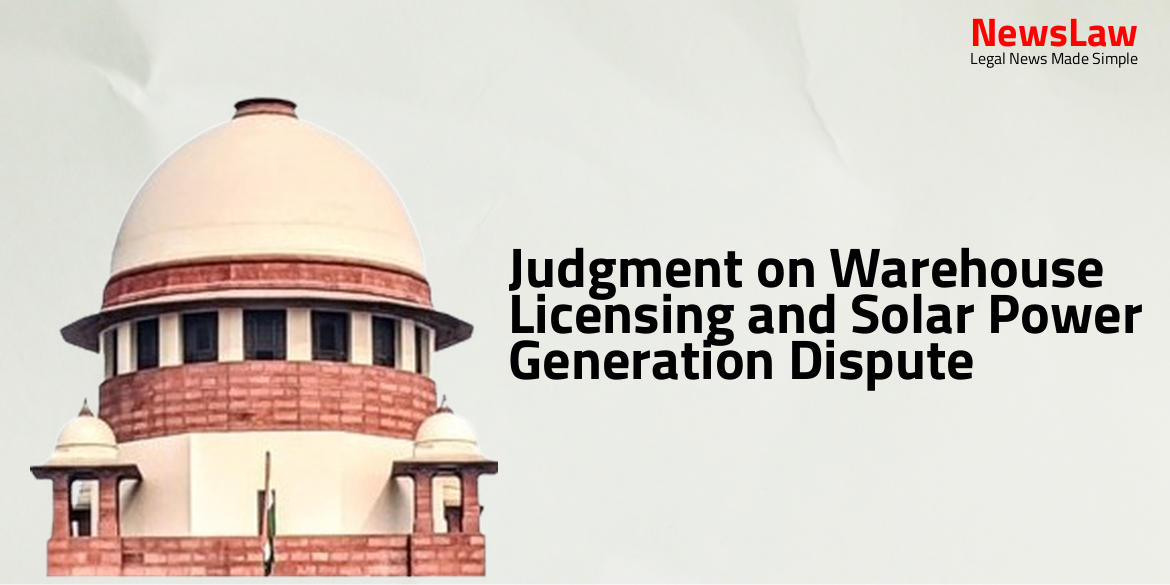Explore the recent ruling by the Delhi High Court concerning the National Exit Test (NExT) and its impact on medical education standards. The court’s decision emphasizes the need for regulatory measures to uphold high standards in Indian Systems of Medicine. Stay informed about the importance of striking a balance between student interests and quality healthcare provision in this landmark case.
Facts
- The Right to Life and Health (RLC) as enshrined in Article 21 of the Constitution was extensively discussed.
- The Court analyzed the potential impact of the National Exit Test (NExT) on the RLC of the students.
- It was established that the NExT did not violate the RLC as it aimed to standardize the quality of education and ensure competent medical professionals in the Indian System of Medicine.
- The importance of striking a balance between the interests of the students and the public healthcare system was highlighted.
- The Court emphasized the need for regulatory measures to maintain high standards in medical education for the benefit of the society at large.
- The Appellants joined their BAMS and BUMS courses before Section 15(1) of the NCISM Act was brought into force on 11 June 2021.
- The Appellants are students currently pursuing their BAMS and BUMS courses from various colleges in India.
- The BAMS and BUMS degrees sought by the Appellants are considered scheduled medical qualifications.
- Section 15(1) of the NCISM Act mandates a National Exit Test (NExT) as a common final year undergraduate examination before obtaining a license to practice as a registered medical practitioner in Indian Systems of Medicine.
- The IMCC Act was repealed with immediate effect on 11 June 2021, coinciding with the enforcement of Section 15 of the NCISM Act.
- The NExT exam requirement under Section 15(1) is applicable to graduates seeking to practice as registered medical practitioners in Unani or Ayurvedic medicine.
Issue
- The issue before the learned Single Judge was whether students who joined the undergraduate course in an Indian System of Medicine before 11 June 2021 would be required to undertake the NExT before being granted a license to practice as a registered medical practitioner.
Arguments
- Appellants argue that they are victims of inter-institutional discrimination between students admitted under different medical streams governed by different bodies, despite academic equality.
- They highlight that the NMC and NCISM Acts are similar in key aspects, yet the requirement of an Exit Examination is applied disparately.
- The retrospective enforcement of regulations on BAMS/BUMS students contrasts with the prospective application on MBBS and Pharmacy students, showing selective discrimination.
- The Appellants solely challenge the immediate applicability of Section 15(1) of the NCISM Act, not its validity.
- They assert that their right to practice should be automatic upon obtaining their degrees, akin to the previous provisions under the IMCC Act.
- The Appellants argue for exemption from the NExT exam for students enrolled before 11 June 2021, as the IMCC Act at their enrollment did not mandate such an intervening examination for registration.
Analysis
- The NExT exam is a licentiate examination for obtaining a license to practice as a registered medical practitioner after obtaining a valid BAMS or BUMS degree.
- The introduction of the NExT is in line with the NEP 2020 and is in public interest to ensure quality control in the field of medicine.
- Section 15(1) of the NCISM Act and Regulation 6(2) of the NCISM Regulations both emphasize the NExT exam as a licentiate examination after obtaining the BAMS/BUMS degree.
- The NExT exam is intended to ensure quality and excellence in individuals practicing Ayurvedic and Unani medicine.
- No right accrues to students until they obtain their BAMS/BUMS degrees, hence they cannot claim a license to practice as registered medical practitioners before that.
- The NExT serves as a course correction for future students without conflicting with the current syllabus followed by enrolled students.
- Challenges to the applicability of Regulations to enrolled students have been dismissed, as the Regulations aim to maintain standards and ensure skills demonstration.
- The Bar Council of India plays a significant role in legal education standards and regulation.
- The country’s need for qualified doctors outweighs the registration of foreign medical graduates, emphasizing the importance of skill testing and quality control in medical practice.
- Bar Council of India introduced regulations for pre-enrolment training and examination for aspiring lawyers.
- The regulations were challenged in the case of V. Sudeer, where the challenge was successful.
- Introduction of the All India Bar Examination under Section 24(3)(d) of the said Act was aimed at maintaining uniform standards.
- No infringement of legal rights of the Appellants was shown with the introduction of the NExT exam.
- The Supreme Court supported the introduction of licentiate exams for professionals, including lawyers, to ensure high standards in the profession.
- Various judgments have highlighted the importance of maintaining quality in legal and medical education.
- The problem of unrecognised institutions and untrained individuals in the field of medicine has a long history in India.
- The Appellants had no vested right to practice as of 11 June, 2021
- The Ministry of AYUSH and NCISM were within their jurisdiction to prescribe the NExT Exam effective from 11 June, 2021
- The statutory regimes governing Appellants, MBBS students, and Diploma in Pharmacy students are different
- Regulators under each statutory regime are autonomous and different
- NCISM’s decision to enforce regulations immediately is within its jurisdiction and not dependent on regulators under different statutes
Decision
- The appeals have been dismissed with no merit found.
- The appeals are dismissed along with pending applications.
- The LPA arises from W.P.(C) No 2998/2024 and has been dismissed by the common impugned judgment.
Case Title: JIWESH KUMAR & ORS. Vs. UNION OF INDIA & ANR. (2024:DHC:4711-DB)
Case Number: LPA-457/2024



